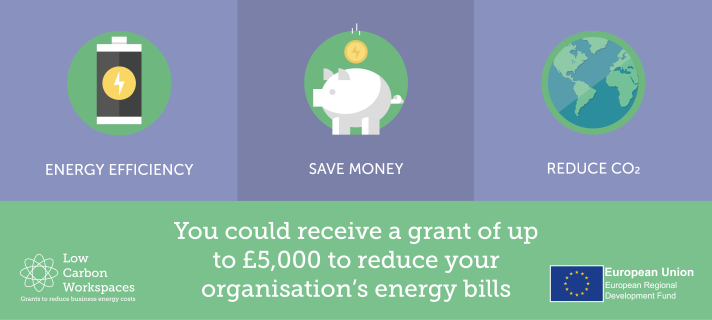To help you manage this during Mental Health Awareness Week (18-24 May) and beyond we have produced a guide that offers businesses support and guidance, by signposting the best resources to help you manage this important issue during the crisis.
Drawing upon resources from the NHS, Mind and other recognised bodies and organisations, our guide will help you to navigate the support that is available as well as detailing preventative techniques that individuals use to manage their mental health.
If are worried about your business at this time, you can speak to a business adviser for free here at SEMLEP’s Growth Hub. Call 0300 01324 35 or email growthhub@semlep.com with any questions.
Mental Health and Wellbeing Resources Pack: Support for individuals & businesses
What is mental health?
The World Health Organisation (WHO) defines mental health as “a state of wellbeing in which the individual realises his or her own abilities, can cope with the normal stresses of life, can work productively and fruitfully, and is able to make a contribution to his or her community”. In WHO’s constitution, it is clear that mental health is an integral part of people’s overall health and therefore it is important to not only address the needs of individuals with defined mental disorders (depression, anxiety disorder, conduct disorder, bipolar disorder and psychosis), but also to safeguard and promote the mental health of all people.
How can a pandemic affect people’s mental health?
During a pandemic it may be necessary for an individual to have prolonged or intermittent periods of isolation to protect themselves from transmission of a virus or disease. Studies have found that humans require frequent social contact to stay happy and healthy – this need intensifies during crisis events. Prolonged periods of social isolation can therefore negatively impact an individual’s mental health leading to depression and emotional distress.
Guidance for individuals
1. Connecting with others and talking about your worries
2. Looking after your body
3. Looking after your mind
4. Staying on top of difficult feelings
5. Setting limits around news
6. Setting goals and objectives
7. Maintaining a sense of hope, positive thinking and helping others
8. Maintaining a positive work/life balance
Guidance for businesses and employers
Guidance for line managers
In a time of crisis, leadership plays an important role in the way that an organisation responds. This section includes advice for line managers to help them support the mental health and wellbeing of their team.
1. Communicate
To reduce the sense of isolation when working from home, managers need to ensure the lines of communication are always open. It is important to keep staff regularly updated regarding the business’ response to the pandemic, together with any appropriate government or public health guidelines. Line managers should:
- Encourage people to talk about mental health and provide a non-judgmental space for them to do so
- Actively reach out colleagues – always remember to ask twice
- Listen and show empathy – once a person knows they are being given the space and time to talk, they will
- Take appropriate action if you think someone is at risk of harming themselves or is at risk of harm from someone else
For more information on how to manage conversations around mental health, see here.
2. Involve the team Line managers should engage with staff and empower them to contribute ideas which may help improve operations during this period of disruption. Software such as Skype or Zoom can help promote communication and team building by allowing all of the team members to be visible to one another during a meeting or conversation. Activities such as the “How to Draw Toast” game can help teams unpack complex problems in a more collaborative and effective manner by understanding that having different views can have a positive effect and learning that combining features can lead to a great system.
3. Be agile and flexible
Business operations will need to be flexible and adaptable during the pandemic. Each person’s situation will be different and line managers should endeavour to accommodate appropriate working arrangements where possible, (such as employees with young children or those who care for family members for example).
4. Define objectives and expectations
Managers should provide clear, attainable goals for their team members and define what is expected of them. This will minimise uncertainty in terms of individuals’ roles and responsibilities and therefore reduce stress and anxiety. This may be no different to their usual work, but it will help them with structuring their day and provide a confidence boost when goals are achieved.
5. Signpost to mental health support
Line managers should look out for signs of emotional distress and refer staff to more structured support where necessary (either internal or external – see Section 6 in this document). In the event that someone is in urgent need of help, direct the individual to the Samaritans (08457 90 90 90) whose lines are open 24 hours a day, 365 days a year, or any other crisis helpline and listening service.
Additional Resources
Guidance for businesses and company actions
For businesses who do not already have a policy in place, now is the time to set out a formal approach to staff mental health and wellbeing across all areas. This will create a culture of ‘open-ness’ where staff feel safe to share their thoughts and can support one another without judgement.
These next steps could include:
- Creating a staff page or forum on the company intranet where employees can stay connected
- Creating a folder on the company shared drive with a list of mental health resources and support. (Any new folder or page created should be easily accessible by staff who have been furloughed.)
- Inviting conversations between staff and management teams to develop a mental health strategy
- Training and Implementing Mental Health First Aiders, (this may not be possible in the current environment, due to COVID-19 restrictions), establishing Mental Health Champions in the workplace, as well as setting up smaller scale “Time to Talk” sessions between line managers and staff and/or between peer groups
- Arranging for mental health awareness training and support for both managers and team members
- Investing in an Employee Assistance Programme which can provide access to counselling and additional resources. To help small businesses (1-100 employees) during COVID-19, 87percent are offering free access to their confidential employee mental wellbeing platform until the end of June 2020 (Free access codes are also provided to those aged 18-24).
Some of these actions will require additional time and cost to roll out on a larger scale, however, the investment will demonstrate the company’s commitment to the wellbeing of its employees.
Additional Resources


